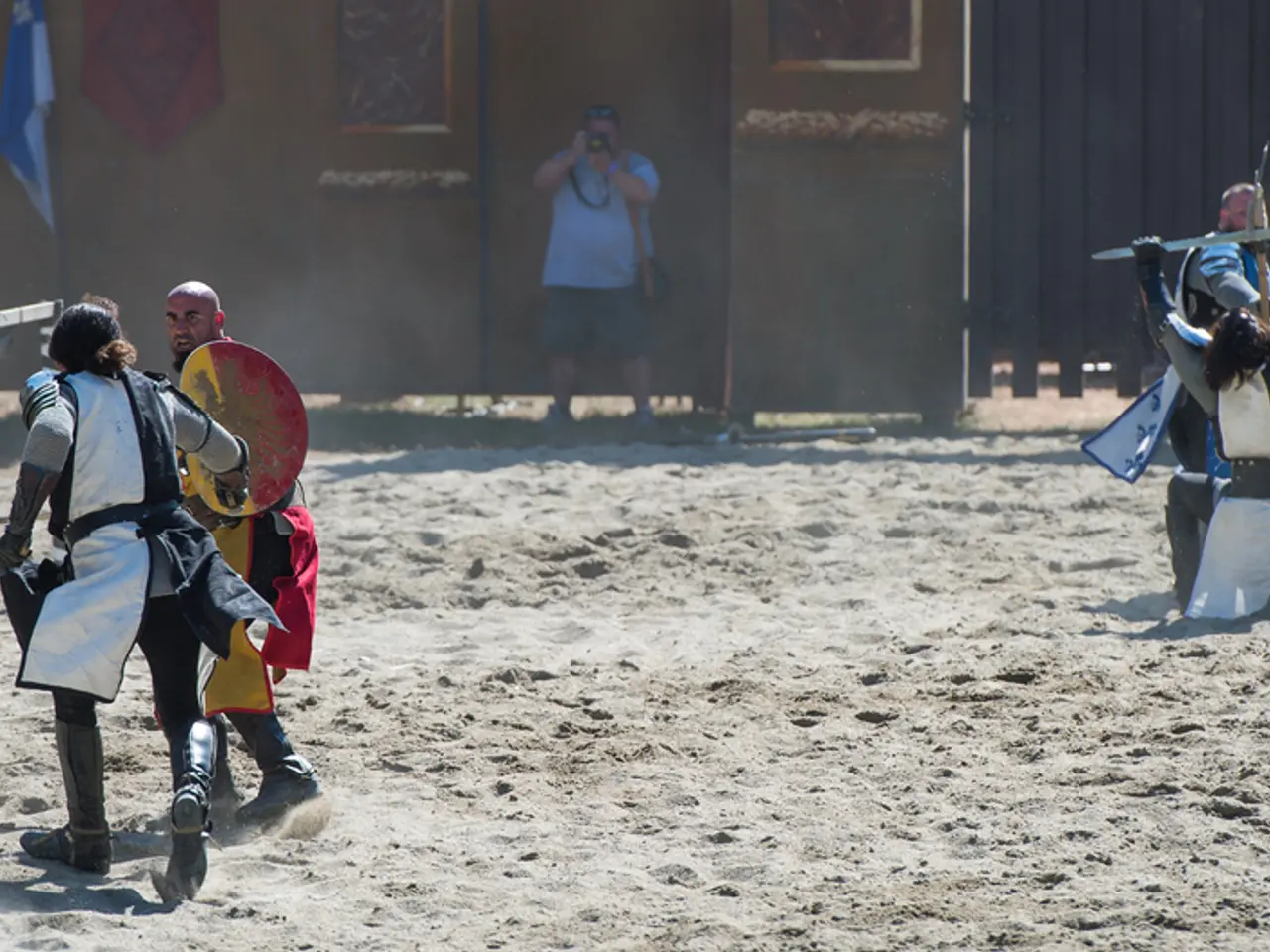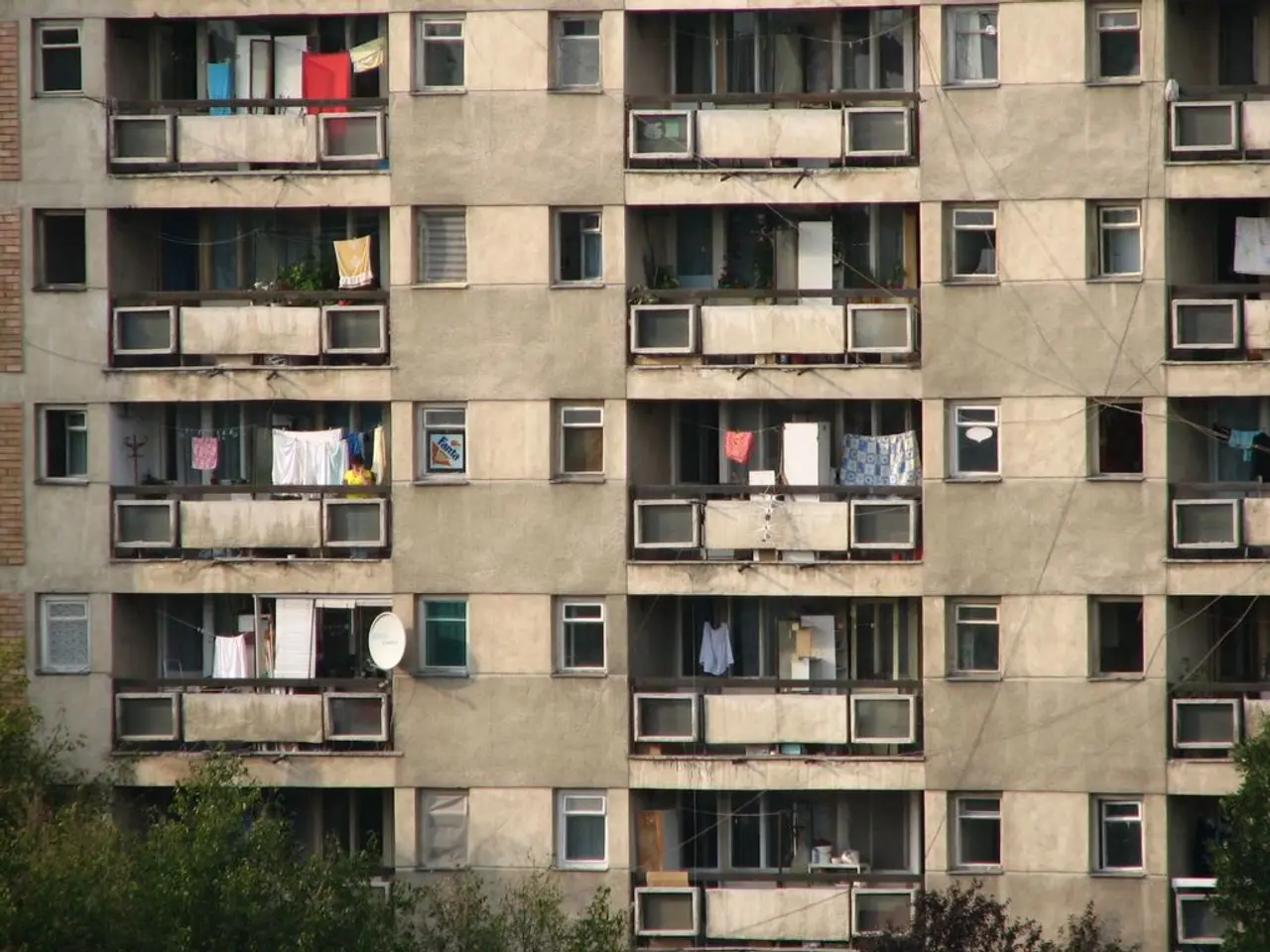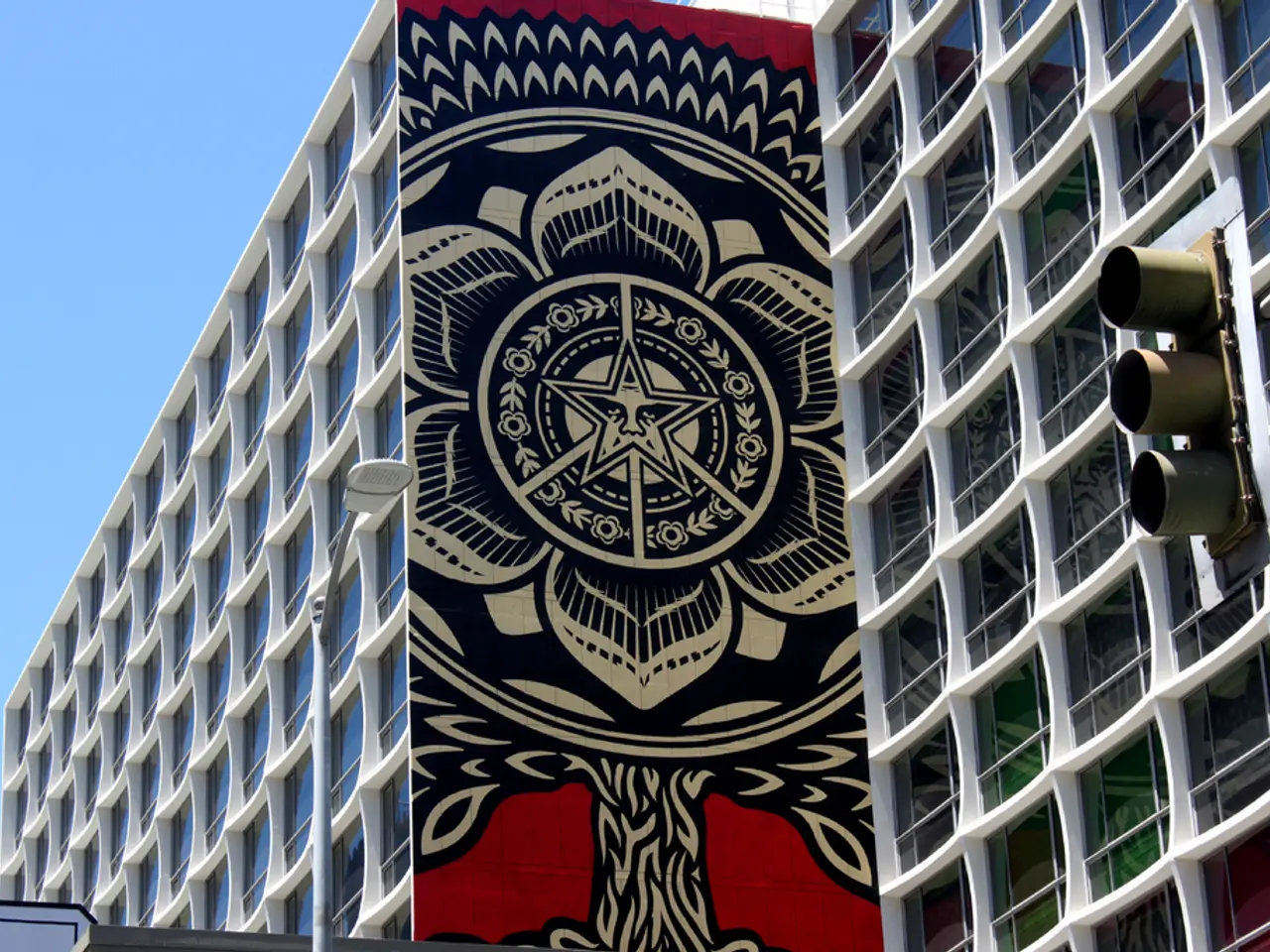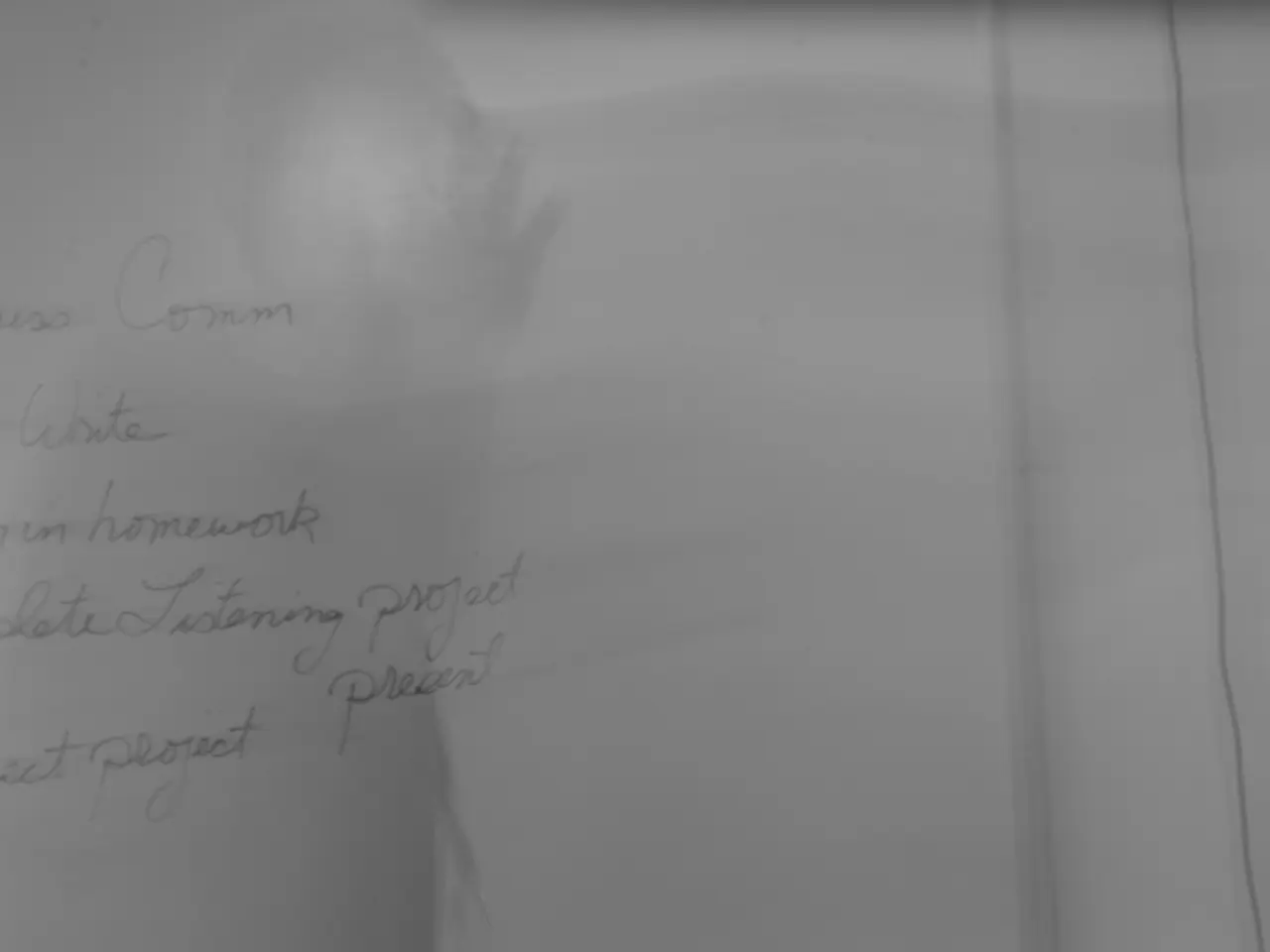Syria's Ministry of Defence targeted by Israeli strikes, as the nation declares a new truce with Druze factions – view the footage here
In the southern Syrian city of Suweida, clashes have raged for most of Wednesday, marking a volatile and tense situation in the region as of mid-July 2025. The violence erupted on July 13 between Druze and Bedouin armed groups, leading to a significant increase in casualties.
Initially, the Druze spiritual leadership allowed Syrian government forces to enter Suweida to restore order and urged armed factions to disarm. However, Sheikh Hikmat al-Hijri, a prominent Druze leader, later called for resistance against what he described as a "brutal campaign" by government forces shelling the city, accusing them of breaking a ceasefire.
Protests among the Druze community in northern Israel have demanded international intervention against Islamist factions allied with the Syrian regime. In response, Israel carried out multiple airstrikes targeting areas in Suweida and neighbouring Daraa governorate, including military positions such as the al-Tha'lah Military Airbase. Reports suggest that at least seven Israeli airstrikes hit targets in Suweida countryside on July 16.
On the evening of July 16, Syrian officials and Druze leaders announced a new ceasefire agreement, intended to halt all military operations. This agreement involves forming a committee of government officials and Druze spiritual leaders to oversee implementation. However, some Druze leaders have rejected the ceasefire, and there is skepticism about the full withdrawal, as security forces other than the army were not mentioned as leaving.
Witnesses have reported that government forces initially sent to stop clashes had allied with Bedouin fighters against Druze combatants and civilians. Israel has vowed to continue protecting the Druze minority along its border.
The conflict in Suweida has left at least 250 people dead as of Wednesday morning, according to the UK-based war monitor Syrian Observatory for Human Rights. Reports of killings and looting in Druze areas have surfaced, and Syrian officials have blamed militias in Suweida for violating the ceasefire agreement.
Israel has taken an aggressive stance toward Syria's new leaders since the fall of Bashar Assad, expressing concerns about Islamist militants near its borders. Israeli forces have seized a UN-patrolled buffer zone on Syrian territory along the border with the Golan Heights and launched hundreds of airstrikes on military sites in Syria. Israeli Prime Minister Benjamin Netanyahu stated that Israel has a commitment to preserve the southwestern region of Syria as a demilitarized area on Israel's border and has an obligation to safeguard the Druze locals.
The Druze religious sect, originating as a 10th-century offshoot of Ismailism, a branch of Shiite Islam, has a significant presence in Syria, with more than half of the roughly 1 million Druze worldwide living in the country. In Israel, the Druze are seen as a loyal minority and often serve in the military. In Syria, the Druze have been divided over how to deal with the country's new leaders.
Israel has threatened to escalate its involvement in support of the Druze religious minority, with Israeli Defense Minister Israel Katz stating that the Israeli army will continue to attack regime forces until they withdraw from the area and will raise the bar of responses against the regime if the message is not understood.
- The escalating conflict in Suweida, Syria, has attracted the attention of global finance markets, with investors closely monitoring the political instability caused by war-and-conflicts in the region and the potential impact on oil prices.
- General news outlets are discussing the role of politics in the ongoing violence in Suweida, with some analysts arguing that Israel's aggressive stance toward Syria's new leaders could further fuel the war-and-conflicts, while others see it as a means to protect the Druze religious minority.






